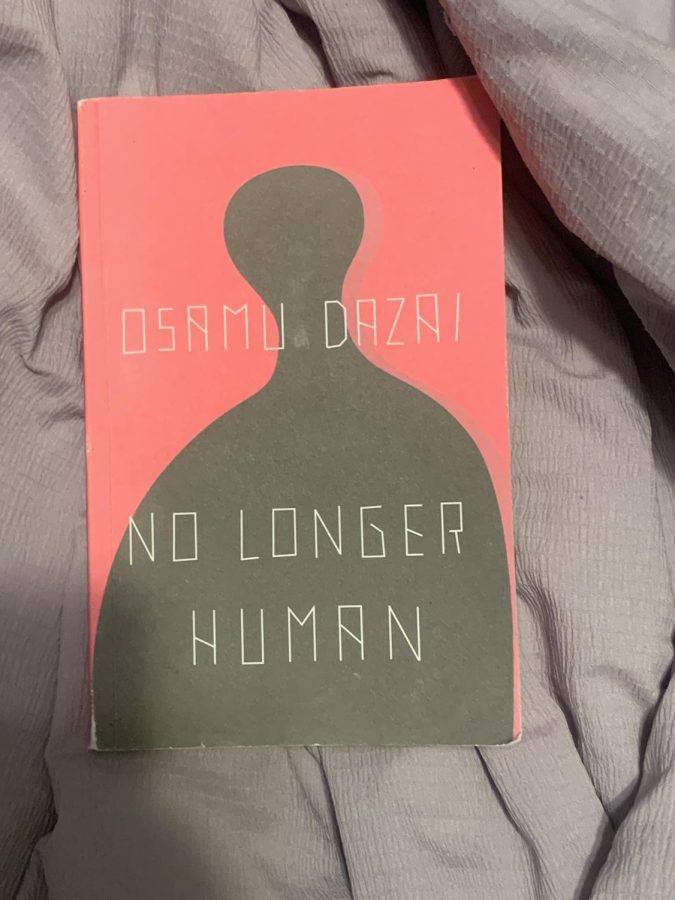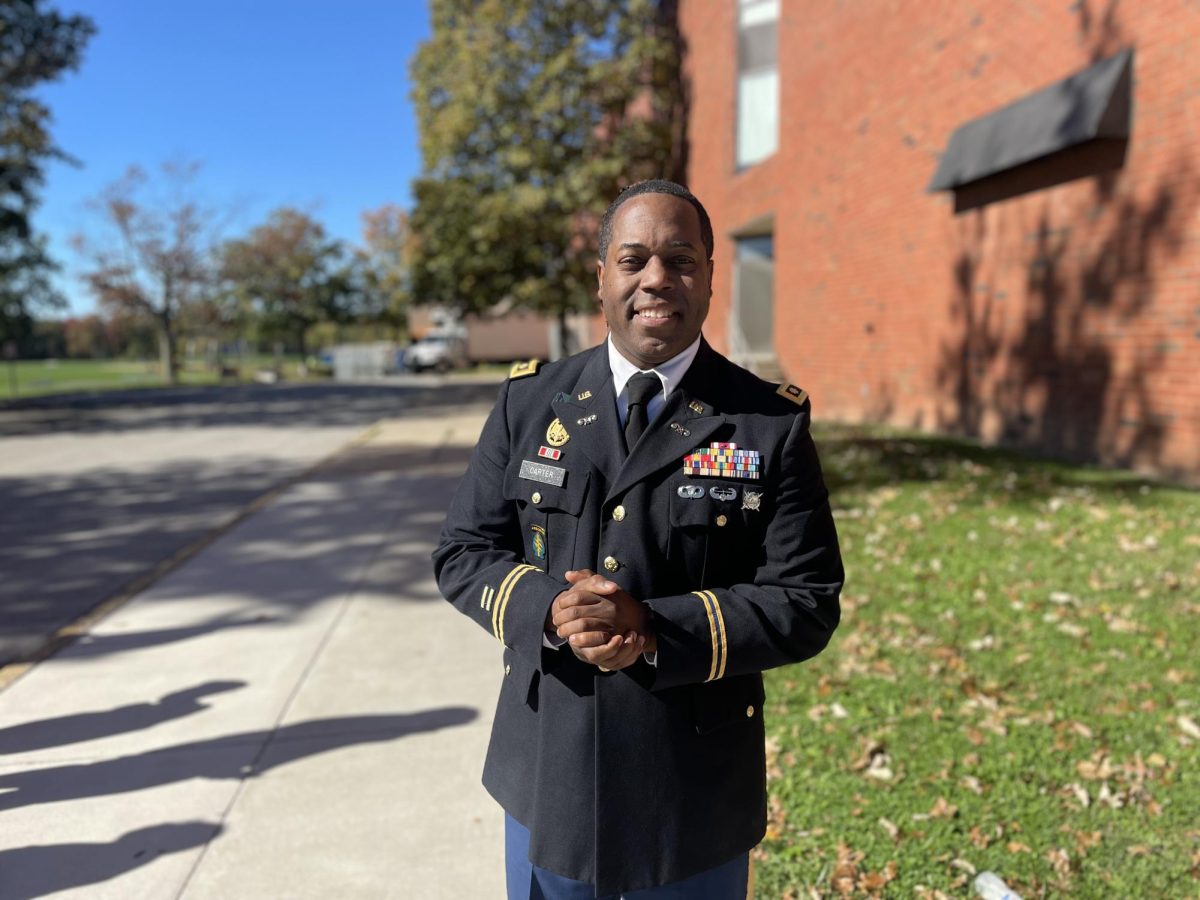Why ‘No Longer Human’ is so Impactful Almost 70 Years Later
April 13, 2023
Osamu Dazai, the alias for Shūji Tsushima, was a Japanese novelist in the mid-1900s. His most popular work is his 1948 novel “No Longer Human,” a semi-autobiographical novel that follows the life of its protagonist, Ōba Yōzō as he goes through life while struggling with depression, social alienation, drug addiction, alcoholism, and suicide. This novel is deemed a modern-day classic and its tragic themes are still exceptionally relevant today.
The devastating topics Dazai portrays are all issues that so many people deal with. Dazai shines an unfiltered and eye-opening light onto these harsh subjects, creating an extraordinary story of revelations that all readers can benefit from.
Dazai perfectly unveils the unseen truth of alienation and the deeper parts of being human through the way Yōzō talks about how much he struggles with interacting with humans, so much to the point at which he considers himself disqualified from being human in an authentic way.
On some occasions, this disqualification he experiences is formed through social anxiety. Yōzō describes his social anxiety in such drastic ways, saying that he “always shook with fear with fright before human beings. Unable as I was to feel the least particle of confidence in my ability to speak and act like a human being…” This uneasy admission of anxiety is so striking to me because of the way he acknowledges the peculiar fear of other human beings he experiences since he knows they don’t share the same dismays as him.
This distress isn’t as individual as he thinks though, because, at the end of the day, the “excessive tension, excessive embarrassment, excessive uneasiness, and apprehension” that he feels are still human emotions. The anxiety that haunts him in the novel was not confined to post-WWII Japan but will disturb all of us for eternity.
These universal emotions Yōzō suffers from are actually what makes him the opposite of what he thinks he is. Instead of being rejected from being human, Yōzō is deeply human.
In a way, he feels emotions larger than most people do. He mentions the fact that whenever his family eats their meals together, he doesn’t understand how such a large family can sit at a table together in total gloom. Wanting to enjoy a family meal in delight is what most humans would want, isn’t it? But he thinks he’s the odd one out because his family forces this gloom onto him that he can’t comprehend. If Yōzō were truly “no longer human,” he would take this gloom and accept it, becoming one of the horrid humans he fears. Instead, he is haunted by the tenderness of being human that others fail to fathom.
Yōzō also has this sentimentality inside of him that was locked off by his dramatics of being sealed off from humanity, a characteristic often found in Dazai’s other characters as well. Yōzō recognizes that he understands emotions such as melancholy and gloom, but he doesn’t understand anger and what must go through a person’s head to feel such an emotion. Obviously, nobody enjoys criticism or being yelled at, but in the face of anger, Yōzō views humans as raging animals, and that’s all he finds humanity to be.
Yōzō feels like all of humanity has this perpetual fury to it and the only way he could get through to other human beings is by clowning. Many people relate to the idea that the only way to get through to other people is by being funny as if humor is a universal anecdote to any kind of indissoluble dejection that might exist in the universe. This clowning of Yōzō’s “was the last quest for love I was to direct at human beings. Although I had a mortal dread of human beings I seemed unable to renounce their society.”
Yōzō confesses that regardless of his morbid fearfulness. he can’t seem to deny humanity, again showing how deeply human he is. Even through his self-imposed isolation and harrowing ostracization, he still attempts to find love with others. This confession made me realize that even when we are horrified by humanity, we will still always wish to be a part of it.
The rejection Yōzō felt he had faced since birth left him with a permanent sense of disconnect and a guilty conscious for the fact that he’d become more than comfortable with his outcasting, even saying he had a criminal conscious for it.
He states, “In my case, the wound appeared of itself when I was an infant, and with the passage of time, far from healing it has grown only deeper, until now it has reached the bone. The agonies I have suffered night after night have made for a hell composed of an infinite diversity of torture, but- though this is a very strange way to put this- the wound has gradually become dearer to me than my own flesh and blood, and I have thought its pain to be the emotion of the wound as it lived or even a murmur of affection.”
He has completely fallen in love with his own depression and the melancholy of his disqualification from humanity, which is probably one of the best representations of what all-consuming depression can do to a person. Depression works in such astounding ways, and we rarely see the side of it that makes us grow an attachment to it. Admissions like this that Yōzō makes throughout the novel is what makes “No Longer Human” such a remarkable story.
This book is able to leave a mark on its audience with almost every page of confession after confession of what his irreparable depression has done to him. From such a young age he felt, “I was being corrupted. I now think that to perpetrate such a thing on a small child is the ugliest, vilest, cruelest crime a human being can commit,” and from that perpetration, we get a timeless story about the ugliest, vilest, cruelest crimes of human beings.
What Dazai doesn’t outright talk about in this novel, though, is the compassion inside of humans. In the translator’s introduction, Donald Keene mentions, “…He records with devastating honesty his every transgression of a code of human conduct which he cannot fathom. Yet, as Dazai realized, the cowardly acts and moments of abject collapse do not tell the whole story. In a superb epilogue, the only objective witness testifies, ‘He was an angel,’ and we are suddenly made to realize the incompleteness of Yōzō’s portrait of himself. In the way most men fail to see their own cruelty, Yōzō had not noticed his gentleness and his capacity for love.”
Yōzō’s story is meant to be one of tragedy and shame, and we are given that illustration throughout the whole novel. However, abruptly at the end, we learn that those who knew Yōzō found him, “Easy-going and amusing, and if only he hadn’t drunk- no, even though he did drink- he was a good boy, an angel.”
We realize this man who illustrated himself as horrific and unacceptable as a human being in various ways was actually an angel, and from there we want to turn back to the first page of the novel and read it all over again with the newfound information. Dazai gives us a new outlook on ourselves by the end of Yōzō’s story, and we are let into the world knowing that even if all we can see is cruelty inside of ourselves, others will still see our gentleness.




M. Loebig • Apr 14, 2023 at 1:54 pm
This review is insightful, reflective, and simply amazing.
Lisa Rambo • Apr 14, 2023 at 1:43 pm
Wow! What a great book review. As I was reading your review I was wondering “Why would I want to read this book at all?” Your last paragraph invited a great interest in actually reading the book. I have a daughter-in-law from Kyoto, and two mixed grandchildren from the union with my oldest son, so I will be interested to see if his book would give me any insight into Japanese culture.